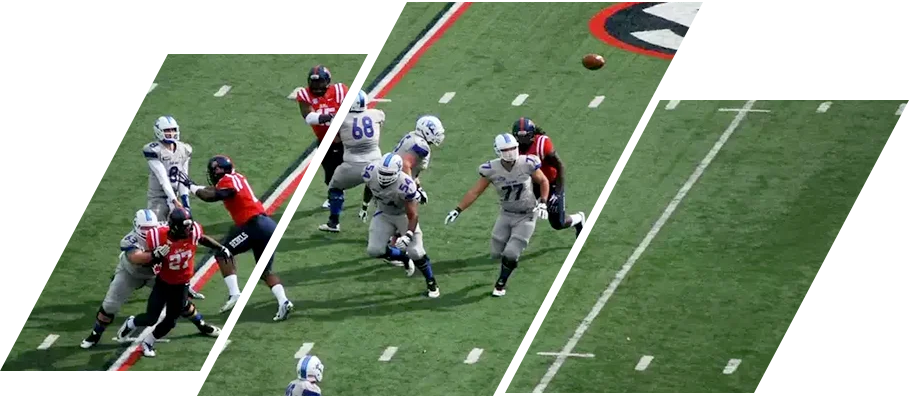What to analyse in a match using sports performance analysis
It’s all well and good understanding that sports performance analysis helps teams to win matches. It’s also good to understand the advantages, the key aspects of analysis, the injury prevention and the different times to analyse matches, but what about knowing “what” to analyse in a match using sports performance analysis.
There are no set metrics when it comes to understanding what to analyse. Different coaches may want different aspects of their match analysed depending on what they are looking to achieve.
We will look at the more obvious areas analysed in matches.
In-game decisions
Decisions made in normal circumstances differ vastly from decisions made under pressure or in the heat of the moment; the more pressure the more effected the decision making. Psychologists Robert Yerkes and John Dillingham Dodson documented that a controlled amount of stress can increase performance.
By contrast too much, or too little is likely to lead to a measurable decline in performance. The pressure to perform can be so great it actually hinders performance!
Analysis software is used to tag and monitor decisions made in matches, and the pressure under which they were made. This leads to coaches having a better understanding of their team and players.
If a coach recognises players are unable to cope with high levels of stress, or unable to make executable decisions under pressure, strategies can be included in their training – these could, in some cases, include various therapies.
Review key events
Performance analysis software is an invaluable tool when used to review key events in a match. Coaches decide what key events they would like to focus on and which event are important. These can include positive and negative events as both are both valuable metrics.
Once a match has been tagged, analysis software not only enables coaches to skip to their chosen key events (making it much quicker to demonstrate their points), it also enables them to show the video playback at varying speeds making performance analysis a great tool to understand, learn, optimise and improve team and player skills.
Key events in matches might indicate how well players manage situations, they might demonstrate how well the team executed strategies and game-plans, how they gained or lost possession – the list of possibilities is endless and depends on the sport being played.
Improve your team's performance
Get insights, get winning
Sign up now and get started
Actual v planned
Sports, especially team sports, rely on the execution of strategies. The “actual v planned” reports show how well teams attempted to execute planned strategies and the outcomes of those attempts.
Performance analysis can help to define the different parts of match strategies making it easier to show where the team are working well, and to show the different parts of the strategies the team need to practise and improve.
The end goal of using “actual v planned” reports is to strengthen weak areas in team performance.
Team performance
Probably the most obvious performance analysis is team performance.
A team is comprised of a number of players in relationship, with a common purpose in mind; they are expected to play well together, to execute game-plans and to win matches.
Team performance analysis provides an in-depth look at match aspects such as: how well did the team attack?, how well did they defend?, how does their possession compare to the possession of the opposition?, how many attempts were there at scoring?, what was the scoring attempt success rate? etc.
Metrics like these, and more, can help define a team’s strong points, their weaknesses, their points of focus, where they need to improve and, of course, to point out their praise worthy moments.
Player performance
Optimising player performance is as important as optimising how players play together as a team; if your players are not performing the team will suffer!
Player performance concentrates on the individual player’s in a match with a view to improving their performance by understanding their strengths and weaknesses.
If players are involved in some sort of “player performance plan” player analysis helps to look at the successes and failures of that plan.
Analysing and comparing team member performances over time gives accurate feedback as to how well the player’s training is going and how effective it is. Coaches use this information to understand what works, and what doesn’t work for individual athletes.
Conclusion
We have outlined the basic “What to analyse in a match using sports performance analysis“. We have looked at In-game decisions, Review key events, Actual v planned, Team performance and Player performance analysis.
Coaches may prefer to use any one of these aspects, or any combination of these aspects to understand and optimise team and player performances.

Anadi James Taylor
CEO - iSportsAnalysis Ltd
I am expert in helping sports clubs and universities with their Sports Video Analysis and their GPS Performance Analysis.
I developed iSportsAnalysis.com with top sports scientists, coaches and trainers to help maximise training gains and to optimise the performance of athletes and teams.
I have developed an online system that has helped over 120 universities, private schools and clubs to reach their true sporting potential; whether that has been from them using the online video streaming services, the online sports video analysis or the GPS performance analysis, the results speak for themselves!
We help you win matches!
You can find out more at iSportsAnalysis.com.

